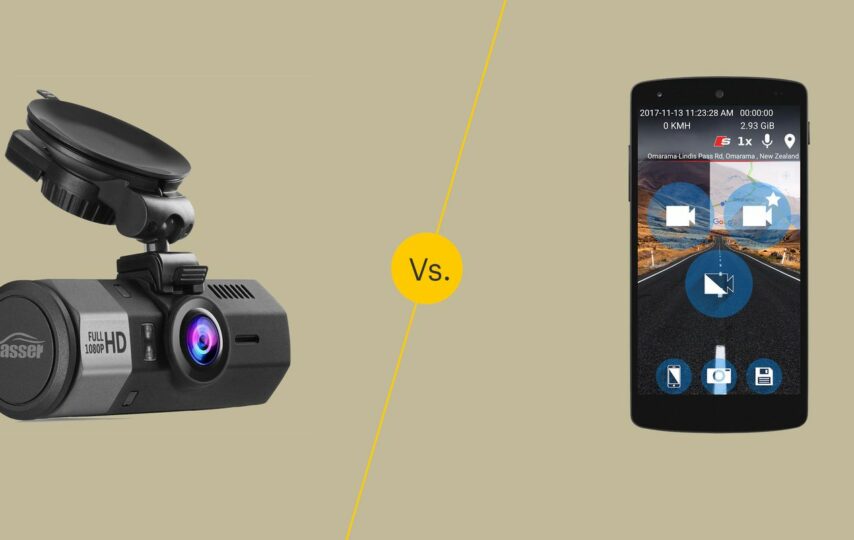Have you ever been in a situation where you wished you had recorded that unexpected twist on the road? This is particularly true in an accident. If only you’d been recording the whole thing, you could easily prove that the other driver was at fault. After all, nobody disputes the hard evidence of video.
Well, know that it’s not too late to install a camera in your car. Namely, you can capture accidents on the road with a dash cam. But, some people don’t want to invest in this type of expense. So, they explore alternatives. Today, we’re diving into the age-old debate: Dash Cams vs. Smartphones – which one is the real MVP when it comes to capturing accidents?
The Role of Dash Cams in Accidents
You’ve seen them on dashboards everywhere, quietly recording the journey. Dash cams are purpose-built for capturing accidents and equipped with features like continuous recording, impact detection, and a wide-angle lens. They’re like the silent guardians of your road trips. Over the years, they’ve become advanced, with a variety of features that can detect an accident and provide recording in various situations. They can be fitted to the front of the car as well as captured behind your vehicle with a second camera.
The Convenience of Smartphone Cameras
Now, let’s talk about the ubiquitous heroes in our pockets – smartphones! They’re always within reach, ready to capture life’s unexpected moments. The convenience of having a built-in camera is hard to beat, especially when you need to document something on the fly.
Many people believe they can use a smartphone in the event of a crash. Well, they can be used after the incident. You can use your smartphone to take photos of the damage and when they’re time-stamped, they can be good for evidence.
Dash Cams: Dedicated for the Job
Video Quality: One area where dash cams shine is video quality. The dedicated nature of these devices often results in clearer, more detailed footage compared to the average smartphone camera. They can be vital for proving a car crash wasn’t your fault. For example, contact rtaclaims if you need help with the accident claim process. They can assist you with your dashcam footage and ensure it’s used to your advantage.
Reliability and Consistency: Dash cams are on duty 24/7, ready to capture every moment on the road. Unlike smartphones, they don’t need your constant attention, ensuring a reliable recording in case of an accident. They can also record in front and behind you.
Smartphone Cameras: Pros and Cons
Accessibility: The smartphone’s built-in camera is undeniably convenient for spontaneous recording. But, are they equipped to handle the demands of accident documentation? They can certainly help you after an accident, and you can take photographs of everything. But, they won’t help to capture the crash itself.
Limitations in Video Quality: Let’s face it – while smartphones are versatile, their video quality may not match up to the dedicated capabilities of dashcams. Plus, that limited field of view might miss crucial details. Not to mention, if your hand is unsteady, you could mess up the video.
Dash Cams vs. Smartphones: Legal Considerations
In the courtroom, every detail matters. Dash cam footage is often more widely accepted as legal evidence, providing a clear and objective record of events. But what about smartphone footage? We’ll explore the legal landscape and considerations in using both.
Of course, you shouldn’t be using your smartphone behind the wheel unless it’s a hands-free mode. Thus, if you pick up your phone at any point to record while the engine is running or you’re driving, you’re going to be in trouble. Legally, you must use a dash cam. Of course, you can use your smartphone after an accident once you’re out of the car.
Cost Comparison: Investing in Safety
Money talks, right? Let’s break down the costs. While smartphones are already in your pocket, a dedicated dash cam might be a wise investment for long-term safety, potentially saving you more in insurance claims down the road. What’s more, some car insurance companies will give you a discount on premiums when you have a dash cam. So, in this sense, you can get your money back for this investment.
User Experience: Ease of Operation
Setting up and using a dash cam versus pulling out your smartphone – which is easier? Well, the great thing about most dash cams is they’ll operate without any input from you. As soon as you turn on the engine, this will activate the recording. Thus, you don’t have to be distracted while you’re driving. With your smartphone, this should be in hands-free mode and you shouldn’t be operating it behind the wheel.
Conclusion
So, who takes the crown in the battle of dashcams vs. Smartphones? Each has its strengths and weaknesses, and they’re useful for different situations. Whether you prioritise video quality, ease of use, or legal acceptance, the choice ultimately depends on your specific needs.








